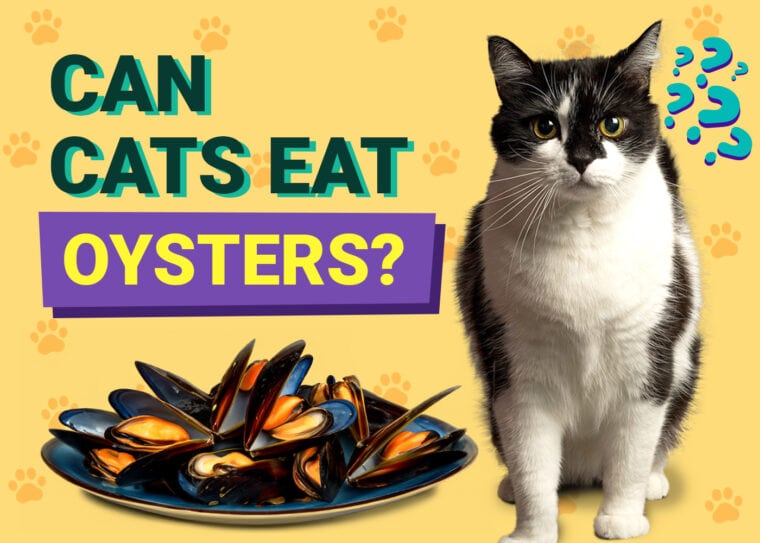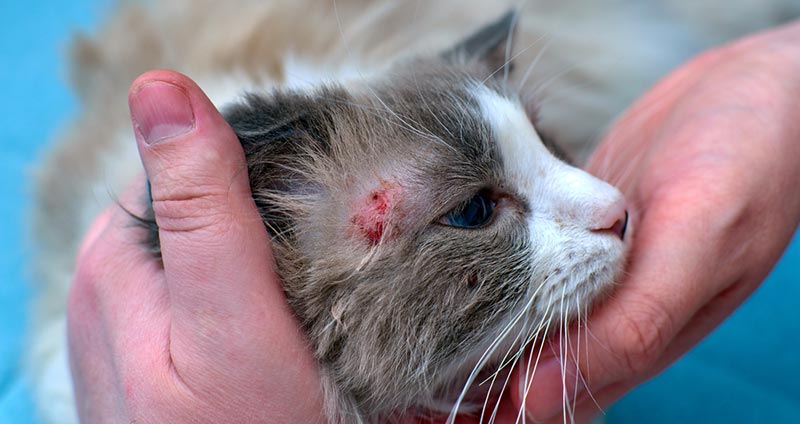
Most people accept cats and seafood as a set-in-stone power couple like peanut butter and jelly, but what types of seafood are healthy for your cat to eat? For instance, what about oysters? Yes, cats can eat oysters that have been fully cooked, like the canned oysters you might eat yourself. It won’t hurt your cat to share an oyster or two as a treat, and oysters even offer some nutritional benefits. That said, raw oysters are toxic to cats and should never be offered to them.
If you have more questions, you’re in the right place. Wade in below with us as we break down the risks of your cat eating oysters, the benefits they have to offer, and more relevant info.
Are Cooked Oysters Healthy for Cats?
Yes, cooked oysters do have some significant dietary benefits for your cat, most notably high protein levels and lots of essential omega-3 fatty acids. Your cat will be drawn to oysters like, well, a cat to fish, but there are the additives we use to cook to consider too. Canned oysters, for instance, may have high sodium content and possibly lots of oil too. Those are decidedly not healthy for your cat, so cooked oysters are best kept as an occasional treat when you really want to spoil them.

Risks of Your Cat Eating Oysters
Besides their less-than-ideal nutritional content, oysters have some dangerous risks to be aware of that may make you think twice about sharing oysters with your cat off your plate. The biggest ones are thiaminase in raw oysters and foodborne illness via bacteria or parasites.
Thiaminase is an enzyme found in raw oysters and some other raw seafood that breaks down thiamin, also known as vitamin B1. That’s a particularly important vitamin for the ideal feline diet and necessary to produce energy, so that makes raw oysters 100% off-limits for your cat.
The other serious risks are bacteria and parasites potentially contaminating the oysters. Everyone has a story about bad shellfish, and the same is true for oysters. Save you and your cat the trouble and consider avoiding oysters altogether.
Are Some Cats Allergic to Oysters?
Yes. Just like some people are allergic to oysters or seafood, some kitties can suffer an allergy to these types of foods. Mild signs you might see include skin rashes or painful, inflamed skin, while severe cases can restrict the airways, also known as anaphylactic shock. If you recognize these types of signs when your cat eats a bit of oyster, fish, or other seafood, an allergy could be to blame. To be more certain and for advice on the next steps, we suggest you visit a trusted vet.

What Seafood Is Safe for My Cat?
Cats are seemingly addicted to the distinctive odor of fish and seafood, so we understand you want to share some of the sea’s bounty with your cat at home to spoil them. Before you get started, we should mention that seafood prepared for your cat shouldn’t be salted, seasoned, or cooked with fatty oils. Ideally, boiled, baked, and grilled fish are best.
The good news is that you have a lot of choices to pick from. So, browse below for some safe seafood ingredients you can give your cat.
Knowing exactly what your feline companion can and cannot eat will help you become the best pet parent. Recognizing that not all cat bowls are equal is also key! The Hepper NomNom Cat Bowl sets itself apart from traditional options by catering to the specific needs of cats. The innovative design offers whisker relief via shallow dishes and promotes digestion with a slight bowl elevation. Find out if the Hepper NomNom is right for your cat by clicking here.
At Pet Keen, we’ve admired Hepper for many years and decided to take a controlling ownership interest so that we could benefit from the outstanding designs of this cool cat company!
Conclusion
Cats love fish and can even indulge in small amounts of fully cooked oysters, but oysters present several risks like thiamine deficiencies from eating raw oysters and foodborne illnesses caused by bacteria or parasites. Instead, opt for healthier seafood like tuna, salmon, or sardines.
Featured Image Credit: 5m,Shutterstock







